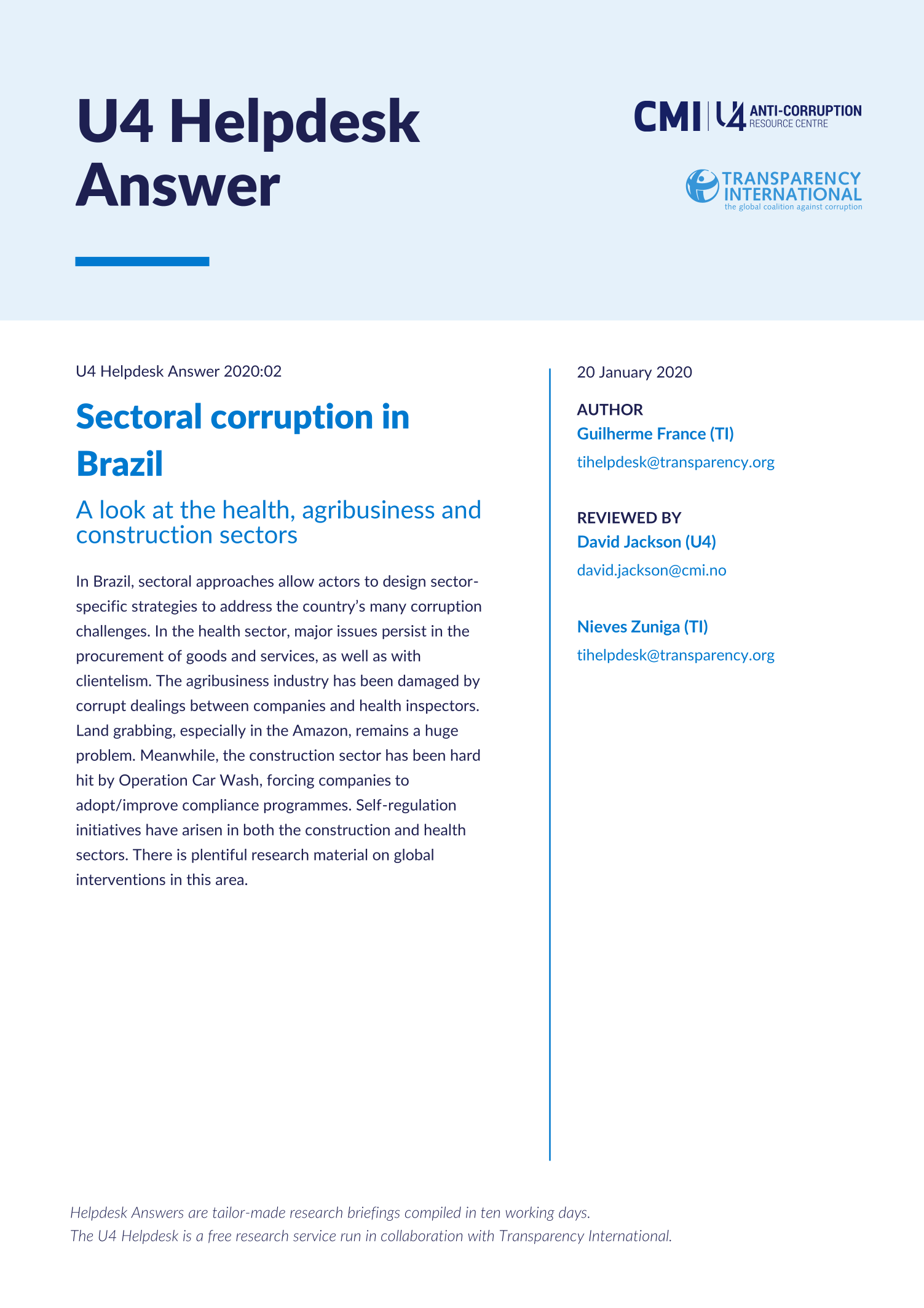Main points
- There are advantages to sectoral approaches in assessing and addressing corruption.
- Governments are the biggest clients for healthcare companies in Brazil, and corruption still presents a substantial risk in procurement proceedings.
- The agribusiness sector has been rocked by a recently uncovered corruption scheme, pushing integrity to the forefront of the sector’s agenda.
- Construction companies were at the centre of corruption schemes uncovered by Operation Carwash, prompting increased scrutiny over their activities.
- Self-regulation and governmental initiatives designed to promote integrity have emerged in all three.


